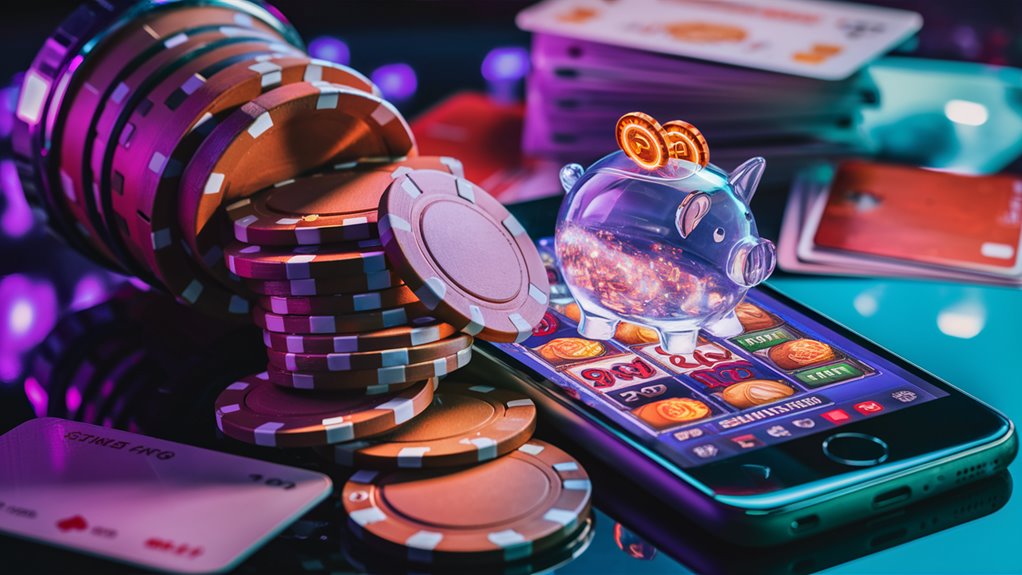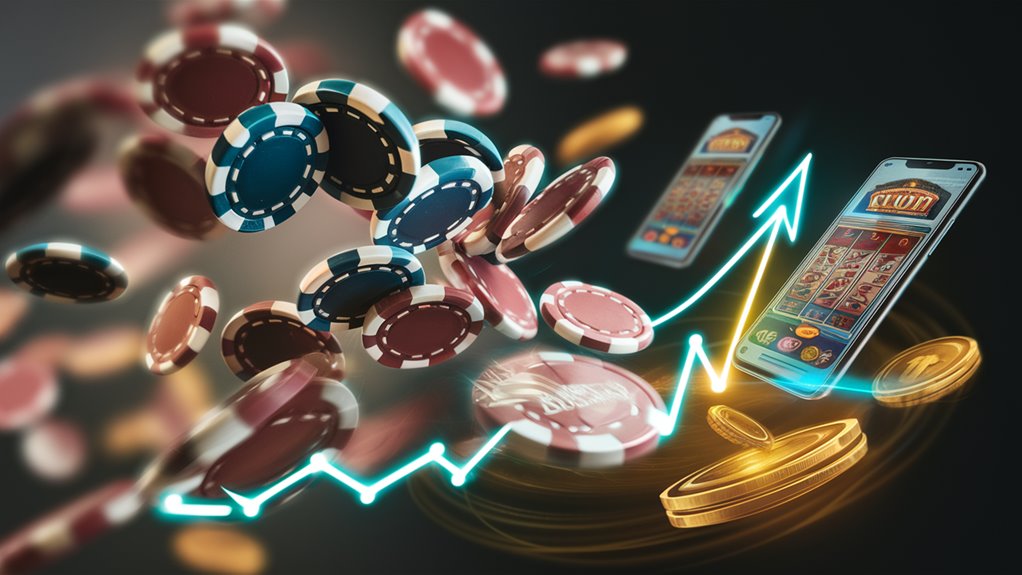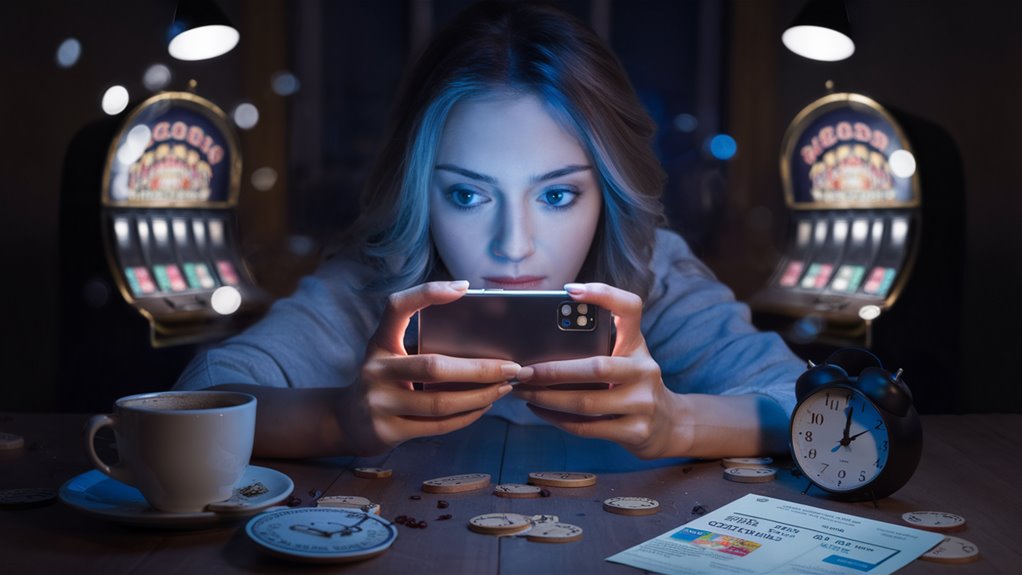Ever wondered why those seemingly simple casino apps on your phone are such big business? Well, let’s talk about the fascinating world of free-to-play casino games. You know the ones – those colorful slot machines and poker tables that promise endless entertainment without risking real money.
Here’s the thing: while you might think these games are just harmless fun, they’re actually incredible money-makers. Companies are raking in billions without ever paying out a single real dollar in prizes. Pretty clever, right?
The secret sauce? It’s all about psychology and smart business strategy. These games tap into our love for instant gratification, social connection, and that rush of winning, even if it’s just virtual coins. Think about it – you start playing for free, get hooked on the exciting animations and celebratory jingles, and before you know it, you’re considering buying some extra coins to keep the fun going.
The developers have mastered what we might call the “golden triangle” of free-to-play success: addictive gameplay, social features that keep you coming back, and a virtual economy that makes spending feel natural. Maybe you’ve noticed how these games give you just enough free coins to get started, but then make progress slightly harder over time?
It’s like a perfectly choreographed dance between giving players enough free stuff to stay interested while creating just enough friction to make spending money feel worth it. And let’s be honest, we’ve all been tempted to buy that special package of virtual coins when our balance runs low during a winning streak.
So next time you’re tapping away at 먹튀검증 바카라사이트 those virtual slot machines, remember there’s a whole lot more going on behind those spinning reels than meets the eye. These aren’t just games – they’re sophisticated entertainment machines designed to turn casual players into paying customers, one virtual coin at a time.
Understanding Virtual Currency Models

Let’s break down how virtual currencies work in free-to-play casino games. You know how real casinos use chips? Well, these games do something similar, but with digital coins and fancy premium currencies like gems or diamonds. It’s pretty clever, actually – you get to enjoy all the thrills of gambling without risking your real money.
Think of it like having two wallets in the game. Your main wallet holds basic coins for regular play, while the other keeps those special premium gems for exclusive features and fancy upgrades. The developers have created this double-currency system to mirror real casino feelings while keeping everything safe and fun.
Ever notice how these games shower you with free coins through daily rewards and achievements? That’s no accident. The basic currency flows pretty freely to keep you playing, but those premium gems? They’re a bit harder to come by.
Just when you’re running low on coins, the game presents you with some choices: wait it out for free refills, watch a few ads for quick bonuses, or pull out your wallet for instant currency packages.
What’s fascinating is how well this system works. Some players end up spending real money on these virtual coins, even though they can’t cash them out. It’s not too different from how traditional slot machines keep people coming back, but these games add their own twist with social features and achievement systems. Pretty smart when you think about it, right?
Psychology Behind Player Spending

Let’s talk about what really makes us spend money in free casino games. You know how these games seem innocent at first? Well, they’re actually designed with some pretty clever psychology behind them.
Think about those “limited time only” deals that pop up when you’re playing. It’s like when stores run flash sales – you feel this urge to act quickly before missing out. These games tap into that same feeling, making you wonder if you’ll regret not grabbing that special offer when you’d the chance.
Here’s something interesting: have you noticed how these games get you invested with time first? It’s like tending to a 먹튀검증 전문가 조언받기 garden.
You spend hours growing your virtual bankroll or reaching certain levels, and suddenly the thought of losing all that progress feels unbearable. That’s when spending real money starts to feel justified.
The games are also really good at giving you those “almost won” moments and small victories that get your brain excited, kind of like getting a text from someone you’re crushing on.
The social part is super powerful too. When you see your friends showing off their fancy virtual items or climbing the leaderboards, it’s hard not to want to keep up.
Plus, the way these games present their prices is pretty sneaky. They’ll show you some really expensive packages first, so when you see the medium-priced ones, they suddenly look like great deals. Just like how that $5 coffee doesn’t seem so bad after seeing the $8 specialty drink, right?
Revenue Streams and Growth Metrics

Ever wondered how free casino games make money without charging players to download? Well, it’s actually quite fascinating.
These games have figured out multiple ways to generate revenue, with the biggest money-maker being virtual currency purchases. Think about it – when players run out of their daily free chips or coins, they’re often willing to spend real money to keep the fun going.
But that’s not the only way these games bring in cash. Advertising plays a huge role too. You know those ads that pop up between games or the ones offering extra coins for watching a video? They’re a goldmine for developers, creating a steady stream of income from advertisers eager to reach players.
Now, let’s talk numbers and how these games measure success. The industry keeps track of some pretty interesting metrics. For instance, they look at how many people play daily versus monthly – it’s kind of like taking attendance in a really big classroom.
A healthy game typically sees about 20% of its monthly players coming back every day, which is pretty impressive when you think about it.
Here’s something surprising – only about 2% to 5% of players actually spend money in these games. The really successful ones might hit 10%, but that’s rare.
It’s like a busy coffee shop where most people stick to plain coffee, but a few regularly splurge on those fancy specialty drinks.
The real key to success? Getting players to stick around. Game developers track things like how many players come back the next day (hoping for around 40%) and who’s still playing after a month (aiming for 15%).
Think of it like joining a gym – lots of people show up the first day, but keeping them coming back is the real challenge.
These numbers help developers understand how valuable each player might be in the long run. After all, a loyal player who sticks around for months is worth way more than someone who plays once and never returns.
It’s pretty similar to how regular customers are the backbone of any successful business.
Player Engagement and Retention

Let’s talk about what really makes players stick around in games – it’s actually pretty fascinating when you break it down.
You know how some games just keep pulling you back in? Well, it’s no accident. Game developers have gotten really clever about mixing rewards, challenges, and social features in just the right way.
Take free-to-play casino games, for instance. They’re masters at getting players hooked with little daily rewards, fun achievements to chase, and that satisfying feeling of watching your level climb higher.
It’s like getting a tiny hit of happiness each time you log in, and before you know it, checking the game becomes part of your daily routine.
But here’s where it gets really interesting – the social side of gaming. When you can team up with friends, join clubs, or compete in tournaments, the game becomes more than just a game.
It turns into this little virtual community where people actually feel connected. Some of the best games out there manage to keep about 20-25% of their players coming back after a month, which is pretty impressive in the mobile gaming world.
The real secret sauce? It’s all in the balance. These games are super smart about how they handle wins and rewards.
They give you just enough victories to keep your hopes up, but not so many that you lose interest. Think of it like a carrot on a stick – they’ll make sure you have enough chips to keep playing, but if you want to progress faster, well, that’s where they hope you’ll reach for your wallet.
Pretty clever when you think about it, right?
Legal and Regulatory Landscape

Let’s talk about the tricky world of free-to-play casino games and their legal stuff. You know how these games can be fun to play without spending real money? Well, the rules around them aren’t exactly straightforward, and they change depending on where you live.
Think of these games like their Vegas cousins, but with training wheels. While you won’t win actual cash, there are still plenty of rules to follow.
The interesting part? Most countries look at these games differently than traditional gambling. Take the U.S., for example – they treat these games more like entertainment apps than gambling services. So while you don’t need those fancy casino licenses, you still need to play by some basic rules about protecting user data and checking players’ ages.
Things get a bit more complicated when we talk about in-app purchases. You can’t just sell virtual coins and items however you want.
Every time someone wants to buy something in your game, you need to be crystal clear about what they’re getting and what their chances are of winning special items. It’s kind of like having to list all the ingredients on a food package.
Here’s something to keep in mind: more and more countries are starting to take a closer look at these games. They’re worried about people getting hooked or developing gambling habits. And those loot boxes everyone’s talking about? They’re becoming a hot topic for lawmakers.
So if you’re running one of these games, you’ll want to keep your eyes peeled for new rules coming down the pipeline.
The whole thing’s a bit like trying to follow a recipe that keeps changing – you need to stay on your toes and keep checking what’s new in the legal cookbook.
Social Gaming Impact

Let’s talk about how social casino games have changed the way we think about digital gambling. You know how gaming used to be a pretty solitary experience? Well, these new social platforms have completely flipped that idea on its head.
Think of social casino games as your neighborhood poker night, but in the digital world. You’re not just spinning slots or playing cards alone anymore – you’re part of a vibrant community where you can show off your wins, challenge your friends, and even send little virtual gifts back and forth.
The best part? No real money is at stake, so you can focus on having fun.
These games are packed with features that make you feel connected. Imagine climbing up a leaderboard and seeing your friend’s name just a few spots above yours, or getting a virtual high-five when you hit a new personal best. It’s these little social touches that keep players coming back for more.
But here’s something worth thinking about: while you’re not betting actual cash, these games can still trigger the same excitement as real gambling.
It’s kind of like how playing basketball video games might make you more interested in actual basketball – some research suggests that social casino games could spark an interest in real gambling, especially among younger players who’ve grown up with smartphones and tablets.
That’s why many game developers have started adding safety features to keep things fun and healthy for everyone involved.
Common Questions
How Do Free Casino Games Affect Relationships Between Family Members?
Let’s talk about how free casino games can really shake up family dynamics. You know how it starts, right? Maybe someone downloads a seemingly harmless poker app or a virtual slot machine game, thinking it’s just a fun way to pass the time.
But here’s the thing – these games can slowly creep into family life in ways you might not expect. Picture this: Mom’s missing family dinner because she’s trying to hit a new high score, or Dad’s constantly checking his phone during your child’s soccer game to collect his hourly bonus coins. It starts small, but the impact can grow.
The tricky part about these games is that they’re designed to be super engaging, almost addictive. They use bright colors, exciting sounds, and clever rewards to keep players coming back for more. And while they’re technically free, those sneaky in-app purchases can create real financial stress. “Just one more spin” or “I need more coins” can turn into a pretty expensive habit.
Family time often takes the biggest hit. Instead of meaningful conversations or shared activities, someone might be mentally checked out, focused on their virtual winning streak. Kids might feel ignored, partners might feel frustrated, and before you know it, there’s this invisible wall between family members.
The good news? Being aware of these potential issues is the first step to preventing them. Setting boundaries, like “no games during meals” or limiting playing time, can help maintain those precious family connections that really matter.
What Percentage of Free-To-Play Casino Gamers Eventually Switch to Real Gambling?
Let’s talk about the interesting journey from free casino games to real gambling. You might be surprised to learn that roughly 10-15% of people who start with free casino apps eventually make their way to real-money gambling. Of course, these numbers bounce around quite a bit depending on where you look and what games we’re talking about.
Think of it like trying free samples at a store – some folks just enjoy the freebie and move on, while others end up buying the full product. What’s really fascinating is how winning streaks in these free games can influence behavior. When players see themselves hitting jackpots or building up virtual fortunes, they’re naturally more tempted to try their luck with real money.
But here’s something to consider: these statistics aren’t set in stone. Different regions show different patterns, and the type of game matters too. Some people might stick to slots, while others get drawn into poker or blackjack. It’s kind of like how some casual runners eventually sign up for marathons, while others are perfectly happy with their neighborhood jogs.
The reality is, free casino games can act as a gateway for some players, but they’re just entertainment for others. Your chances of switching to real gambling tend to go up if you’re consistently winning in the free version, which makes sense when you think about it. After all, success, even in a free game, can build confidence and create that “what if” curiosity about real gambling.
Do Free Casino Games Consume More Mobile Data Than Other Apps?
Let’s talk about data usage when it comes to casino games on your phone. You might be surprised to learn that these games are actually pretty gentle on your data plan compared to streaming apps like Netflix or YouTube. On average, casino apps use somewhere between 10 to 50MB per hour, which is quite reasonable.
Think of it this way – while you’re spinning slots or playing poker, you’re using about the same amount of data as browsing a few web pages. That’s way less than watching a single YouTube video! However, casino games do tend to use more data than simple puzzle games or basic card apps because they often include fancy graphics and real-time features.
Keep in mind that your actual data usage can vary depending on the specific casino app you’re using. Games with 3D graphics or live dealer features will naturally use more data than basic slot machines or simple blackjack games. Plus, if you’re playing multiplayer games or tournaments, you’ll see slightly higher data consumption because of the constant connection to other players.
Can Children Accidentally Make Purchases While Playing Free Casino Games?
You know, it’s something many parents don’t realize until it’s too late – kids playing those seemingly harmless free casino games can actually rack up real charges on your credit card. Let’s break this down. While these games start out free, they’re often packed with tempting in-app purchases that pop up during gameplay. A child might not even understand they’re spending actual money when they tap “buy more coins” or “unlock special features.”
The good news is you can prevent these accidental purchases pretty easily. First things first, make sure your device’s parental controls are properly set up. This usually takes just a few minutes and can save you from some nasty surprises on your next credit card statement. Think of it like putting a child lock on cabinet doors – it’s just an extra layer of protection.
So what exactly should you watch out for? Well, most casino-style games have those flashy “special offers” or “coin packages” that keep popping up. Kids might think they’re just part of the game and tap away without realizing they’re connected to real money transactions. It’s surprisingly common, and many parents have learned this lesson the hard way.
Are Free Casino Game Winners More Likely to Succeed in Real Casinos?
Let’s be honest about something that many new gamblers wonder about – can playing those free casino games actually help you win at real casinos? Well, the reality might surprise you.
Think of it like playing a basketball video game versus stepping onto a real court. Sure, you might get familiar with the basic rules, but the actual experience is completely different. Free casino games are designed to keep you entertained and coming back for more, which means they often feature much friendlier odds than you’ll find in real casinos.
You know those exciting winning streaks you experience in free games? They’re deliberately programmed that way to give you a false sense of confidence. Real casinos operate under strict regulations and mathematical probabilities that create a very different playing environment. The odds are tighter, the stakes are real, and the house always maintains its mathematical advantage.